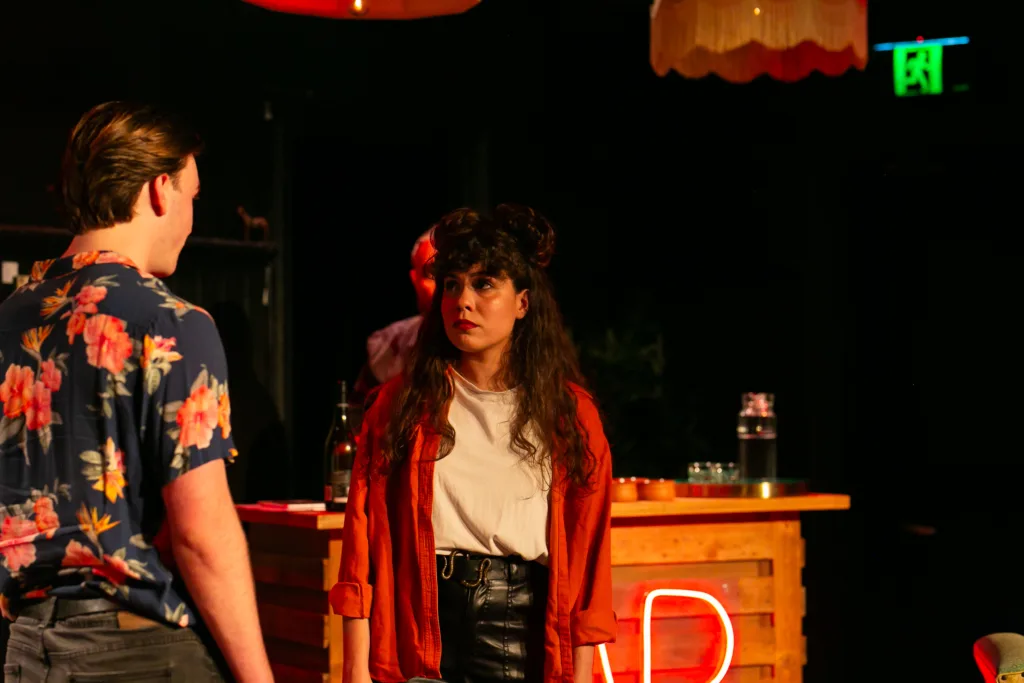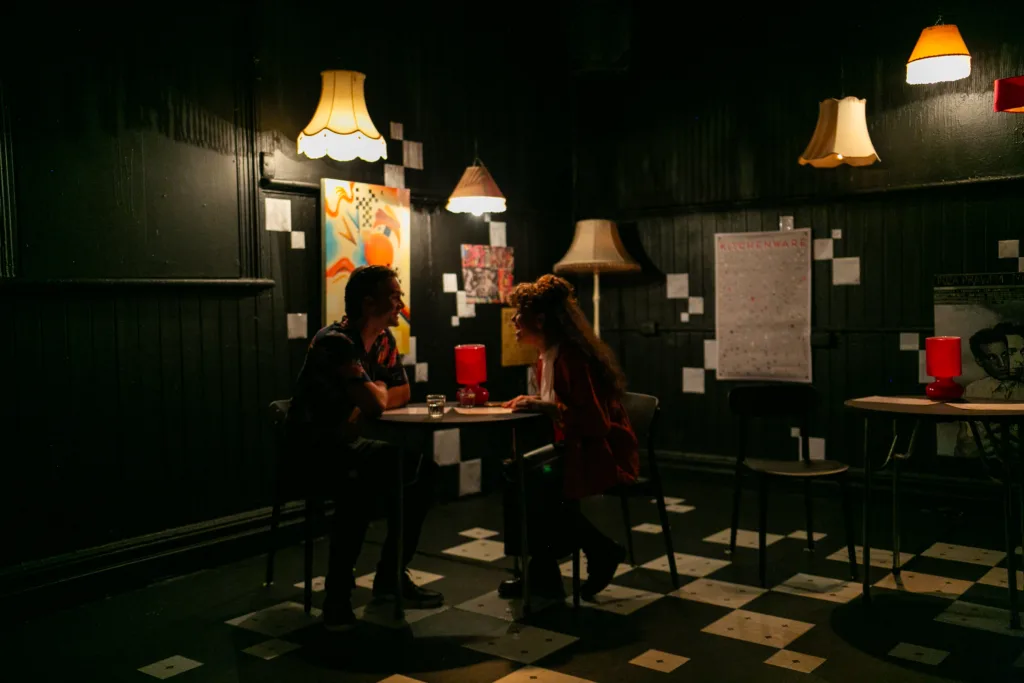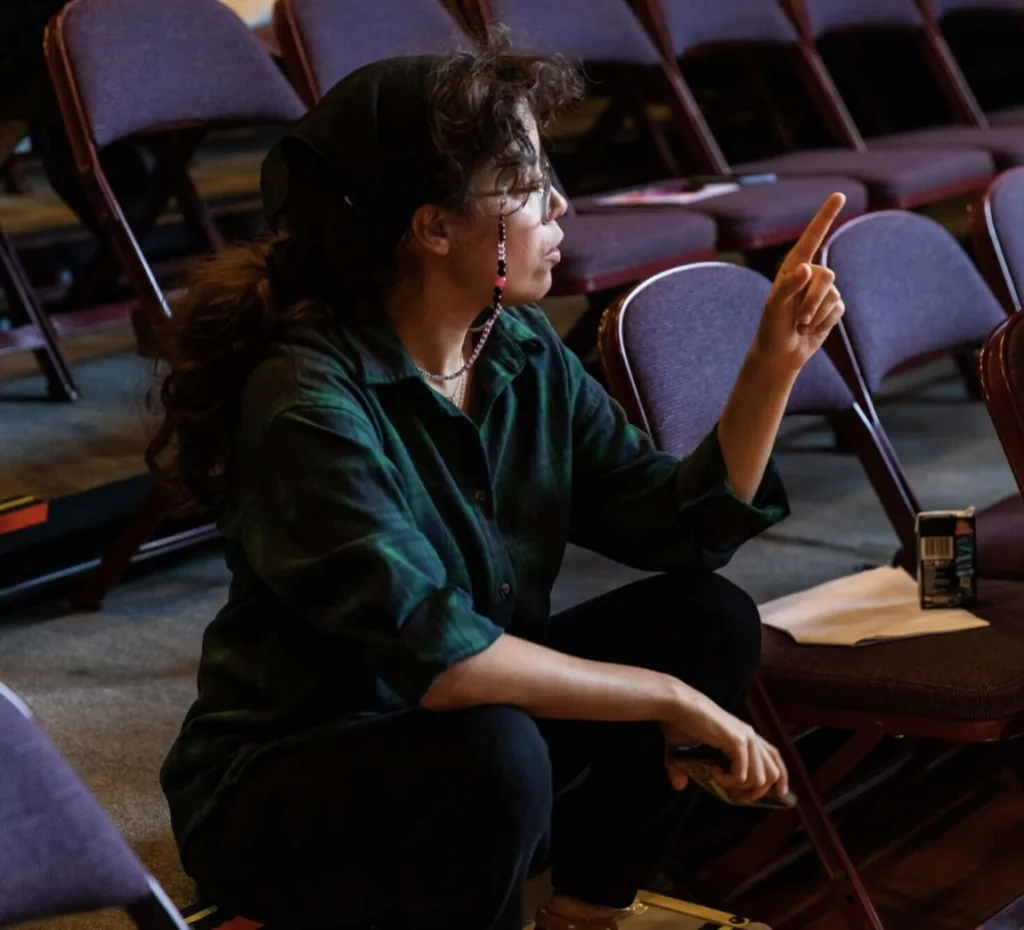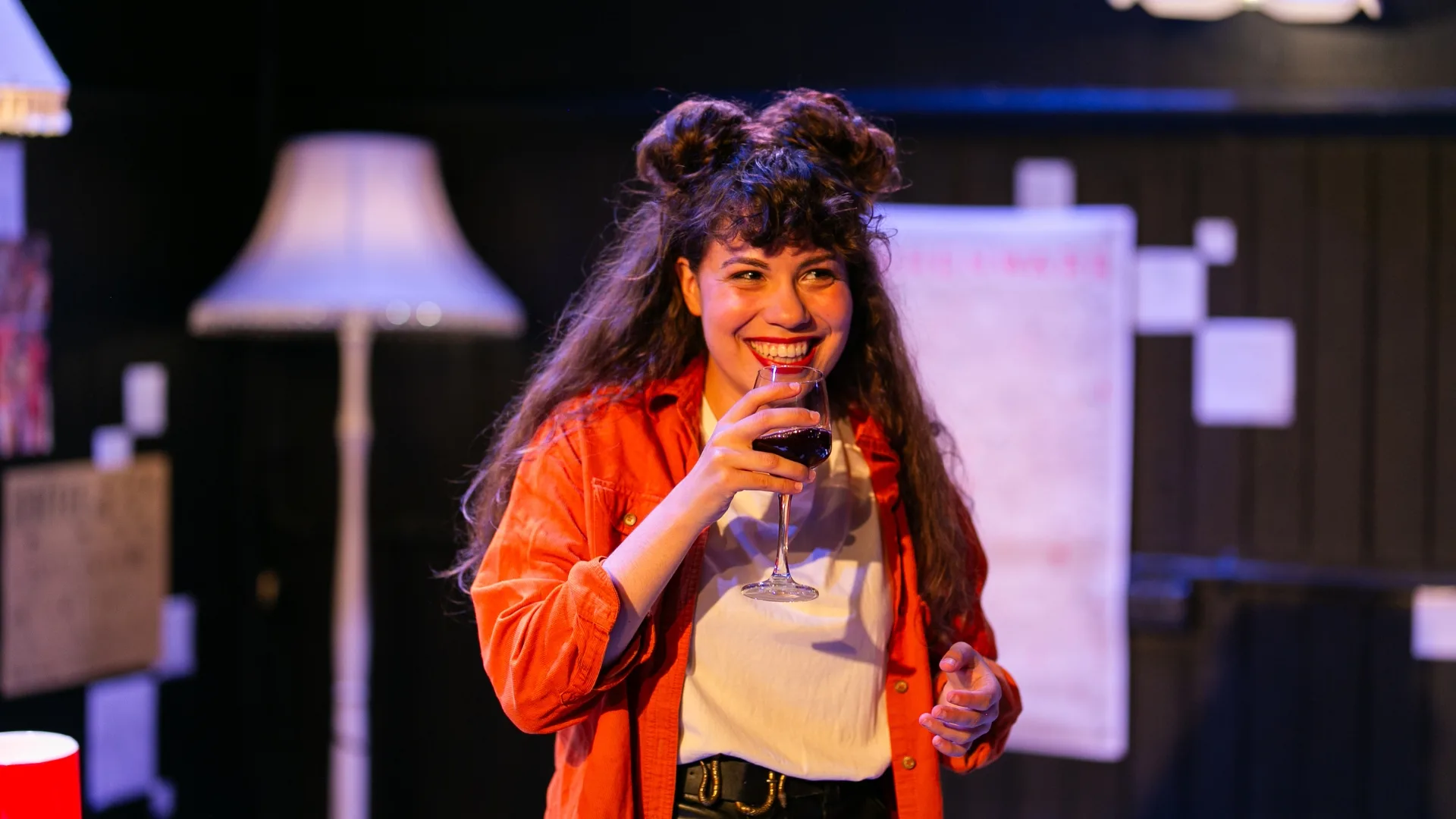If NAIDOC Week 2024’s theme, “Keep the Fire Burning: Blak, Loud and Proud,” were to be embodied in a single person, it would be director, actor and playwright Cezera Critti-Schnaars. Her story is a testament to resilience in the face of a complex history, a celebration of cultural duality, and a powerful call for inclusivity.
Cezera’s background bridges two worlds that she brings together through her art. With Noongar and Greek heritage from Asia Minor, Corfu and Egypt, she carries the weight of histories marked by trauma.
“My great grandparents on both my mum and dad’s sides were getting slaughtered. There was genocide on both sides,” she says, referring to bloodshed that impacted both her Indigenous Australian and Greek ancestry.
She discovered the truth about the Greek genocide aged 12.
“It is complicated to explain how I felt at the time. I had the realisation that at one point had some very bad people had their way, we would not exist on either side of this family,” she adds.
Despite the hardships, Cezara not only embraces the mosaic that makes up her identity but adds being queer to the equation.

“My yiayia now has dementia and forgets that. Like a typical yiayia, she’ll ask mum if I have a boyfriend. Then she asks if I have a girlfriend,” Cezara laughs. “She’s slightly cynical but very funny. And I always feel very special when she remembers me. I know she loves me.”
Growing up, yiayia’s house was full of doilies and Cezara’s family also have a large tapestry hung on their wall.
“I also have Egyptian bangles and they are more than pretty jewels, but a connection with my heritage,” she says.
She speaks of her yiayia with fondness, and remembers her as being traditional, especially when it came to insisting everyone eat her food.
“Yiayia didn’t talk as much about Asia Minor as she did about growing up in Egypt. She would tell us how she would sit on her porch in Cairo and watch passers-by. There was always something happening,” Cezara says.
Like many Greek Egyptians, yiayia spoke many languages.
“She could speak Arabic, Greek as well as English, French and Italian,” she explains.
Despite her multilingual past, Cezera grew up in a monolingual household. At 19, she picked up the Noongar language as part of her work in a theatre troupe, going from school to school spreading culture.
She also tried learning Greek from her grandmother before dementia set in.
“She lived with us for a couple of years, and I asked to learn Greek. She told me it was hard, and good luck with it,” Cezera laughs.

Cezera feels a deep connection to both cultures.
“There’s an incredible openness and honesty in both the Greek and Noongar cultures. We make jokes and roast each other on both sides, and that’s a reason we’re always going to stay humble,” she says, adding that it influences her communication style and the way she works.
“There’s a lack of pretence on both sides of my family, and this influences my work. I may as well be myself.”
Growing up and until this day, Cezara enjoys dreamtime and Greek mythology.
“Storytelling is very much part of both my cultures that it almost makes sense of what I do in my work,” she says.
Cezera readily admits her ongoing love for Greek myths, devouring both classics like The Odyssey and The Iliad and modern retellings like A Thousand Ships, which offers a woman’s perspective on the Trojan War.
She draws a parallel between Greek myths and dreamtime, highlighting their enduring relevance despite their age.
“The Pleiades, also known as the Seven Sisters in Aboriginal Dreamtime, represent a journey of women pursued by men and is similar in both dreamtime and Greek mythology,” she says.
“Don’t tell me that these two cultures were able to communicate when they came up with that story.”
Her ability to bridge cultures and breathe new life into established narratives positions her as a prominent voice in the Australian arts scene. It’s a scene she grew up in.
“My father decided to create his own theatre troupe when my brothers and I (all triplets) were aged three,” she says. “My mother was supportive of this. And both my brothers are also pursuing careers in the arts.”
She made her professional debut, aged 20, in 2020 in Yirri Yaakin’s re-imagining of Shakespeare’s Macbeth, called Hecate, drawing from Greek mythology.

“The fact that I did such a notable work as Hecate as my first work has really helped, and everything I have done since then has linked to that,” she says.
Her heritage is both a blessing and a curse.
“There’s not many within the directing scene like me. Not only am I Indigenous, but I am also Greek. I am also queer,” she says, adding that it is almost easier getting work as a director than as an actor.
“In film, I don’t easily fit into boxes. I don’t look the way they think an Indigenous woman should look and if they want a Greek woman, I don’t look the way they expect.”
She adds that Indigenous roles are also typecast stereotypically.
“It’s changing now but growing up, I’d see Indigenous people in film portrayed in specific roles, and these roles were not the type you’d want to see yourself in,” she says.
Her current role as a young Cypriot girl in Sista Girl is one of the rare times she has had the opportunity to portray a Greek girl. The play is about two sisters from the same father, one First Nations and another Cypriot. Through the play, Cezara has also had the opportunity to learn more about the Turkish invasion of Cyprus, drawing from her heritage to perform the role.
Despite emerging as a trailblazing artist, Cezaria says she would make more money in a traditional, mainstream job.
“The simplest goal I want to achieve is to get to a point where I earn a decent liveable wage purely from working in the arts. I want to reach a point in my career where I can work anywhere in the country,” she says.
More than just a rising star in the Australian arts scene, she is a powerful symbol of NAIDOC Week’s message: to keep the fire burning, to celebrate identity in all its complexities, and to find common ground through shared stories. She is a beacon of hope for a future that embraces inclusivity and understanding.
